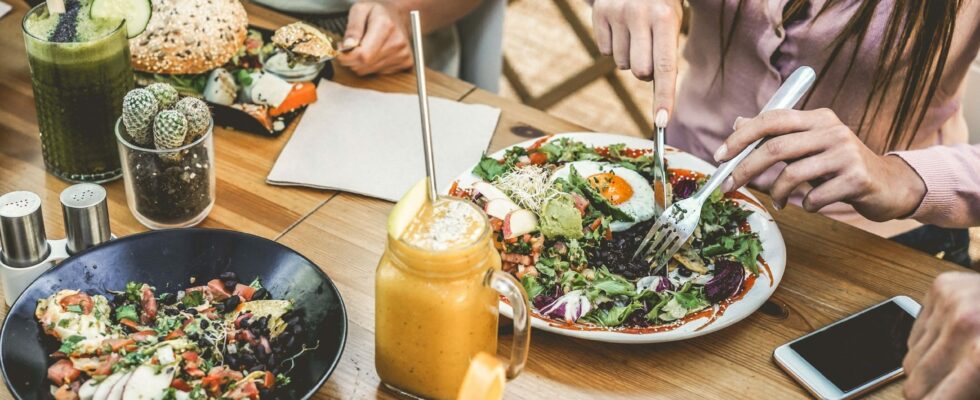“Oh well, you don’t eat meat? But are eggs and cheese ok, or are you not having that either?” “Vegetarians still eat fish, right?“More and more people want to reduce their meat consumption, whether for health reasons, to preserve the planet and/or to support the cause of animal welfare. We are thinking in particular of Veganuary, a challenge that has come from England launched in 2014 and today followed in around a hundred countries, including France, by millions of people. It is therefore not surprising to see more and more meat-free diets emerging. However, these eating habits are not! are not always well understood, and the There are still many confusions about them, for example, we often hear that the word “vegan” is the French translation of the word “vegan”.
Differences between veganism and veganism
If it excludes any product of animal origin from the plate (like veganism), the veganism however, is strictly limited to food. THE veganismit covers a broader spectrum of daily consumption. It also applies to clothing, shoes, cosmetic products and even furniture: no leather of course, whether for the belt or the sofa, nor lipstick or cream based on animal fat! But this is also reflected in the choice of leisure activities: because they are committed to the cause of animal welfare, vegan people fight (quite logically) all places, traditions and representations involving mistreatment, whether zoos, dolphinariums, bullfights, circuses and even animal rides organized on tourist circuits.
Are you an unknowing substitute?
It’s not always easy to find your way among vegetarians either. In principle, the latter generally consume all animal products apart from meat and fish, which includes eggs, cheese and honey. But there are nevertheless variations within vegetarianism itself. If you are vegetarian, you eat eggs but no dairy products, you are “ovo-vegetarian“. If, on the other hand, you consume dairy products, but not eggs, we will say that you are lacto-vegetarian. There are also vegetarians who allow themselves fish: we then talk about pesco-vegetarians.
The matter becomes more complicated when we include people who decide to reduce meat or animal products without stopping completely also have the right to a little name: flexitariansa term increasingly known in the face of both health and ecological awareness which encourages many of us to slow down on meat products, particularly red meat. Concretely, it is estimated that 10.6 million French people have reduced their meat consumption.
If you’re more into plant-based proteins and eat less meat precisely for this reason, you may be a “substitute” who is unaware! Does this word mean nothing to you? Not surprising, since it does not appear (yet) in the French dictionary. We recently saw it in a survey by the Swiss company Coop, which tells us that 28% of consumers eat plant-based alternatives to meat and fish several times a month or occasionally. Similar to flexitarianism, substitution also stems from a desire to preserve the planet.
So you will have understood: meat-free diets are becoming more and more numerous. And you have to admit that it can be difficult to remember all the terms. But if you now know how to distinguish between vegan, vegan and vegetarian, it’s not so bad!
